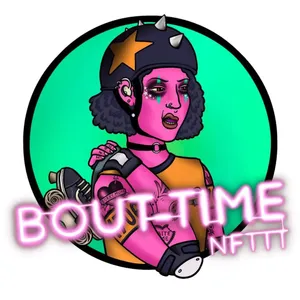Roller derby community resoundingly rejects NFT project
- "When NFTs came to roller derby, roller derby put up a fight", Vox
- Bout Time NFTTT website, with statement about project closure
Department of Justice charges the scammers behind the January "Frosties" NFT rug pull with fraud and money laundering shortly before they launch their second project
The statement also alleged that the duo were working on another NFT project called "Embers", which they hoped would generate around $1.5 million. The project was set to mint on March 26, and the 60,000-member Discord has been thrown into disarray. Some of the community moderators began deleting links to the D.O.J. announcement, and attempted to suggest that the Department of Justice website had been faked to "FUD" the project.
The individuals behind the Frosties scheme face charges that each carry a maximum sentence of 20 years in prison, if they are convicted.
Pye suffers a $2.6 million loss in a flash loan attack
The guy behind the "NFT band" on Ellen thinks you should have to pay royalties on dance moves
 I tried to get a good screengrab of the "NFT band" but the videographer, reasonably, seemed to find the human performer more interesting (attribution)
I tried to get a good screengrab of the "NFT band" but the videographer, reasonably, seemed to find the human performer more interesting (attribution)The animator who created the band animation, however, has big dreams for the possibilities NFTs could bring to dancers. Dancers "can now claim digital ownership over a series of moves or routines by means of NFTs". Imagine, he says, "owning the original Moonwalk". Yes, everyone, just imagine how much better the world could be today if everyone had had to pay royalties whenever they imitated Michael Jackson's signature move.
- "NFT Band Debuts With Singer Kiesza on Ellen Degeneres Show", Decrypt
- "Kiesza Performs 'Passenger'", YouTube video
Parts of the "Caked Apes" NFT project team both sue each other
Both lawsuits center on Taylor Whitley and his departure from the project, but they diverge considerably from there. Whitley's suit claims that he was wrongly ousted from the project; the other lawsuit claims that Whitley engaged in "unhinged, destructive, and egotistical acts... to sabotage... "Caked Apes", after Whitley failed to usurp ownership and control of the project entirely for himself". They also allege that Whitley misused DMCA takedowns to have the collection removed from online marketplaces. The lawsuits are liable to be complicated somewhat by the fact that a partnership agreement doesn't appear to have ever been written up.
A Robin Hood-esque attacker steals $52 million from Cashio, then returns smaller amounts and pledges to donate the rest to charity
Saber, the providers of the Cashio liquidity pool, published a postmortem of the attack in which they wrote that "We do not have the money to pay back depositors." The hack was the second largest in Solana history, behind the February Wormhole hack. Saber entreated the hacker to return the funds, writing, "accounts with over $100k are often users' life savings on leverage, and many of us will seriously be affected financially after this incident."
On March 28, the attacker sent a message saying that "the intention was only to take money from those who do not need it, not from those who do", and invited users who had over $100,000 to apply to receive their funds back with "an explanation of the source of this money and why you need it back. more detail is better. money will not be refund to rich american and european that don't need it." Somewhat strangely, Cashio themselves began hosting a website to allow affected users to plead with the hacker to return the money.
VeVe marketplace goes offline for over a day after an exploit results in a "large amount of gems being acquired illegitimately"
On March 22, VeVe tweeted that "We have become aware of an exploit of our systems which resulted in a large amount of gems being acquired illegitimately", and that they had closed the market, as well as purchases and transfers of Gems. The market remained closed for over a day as VeVe apparently triaged the problem. It's not clear yet what the impact has been to the platform or its users, though many reported that their NFTs appeared to have plunged in value.
G2 Esports sues NFT provider Bondly, accuses them of using them for publicity
- "G2 Esports files lawsuit against NFT provider Bondly", The Washington Post
Team behind the NeoNexus NFT project raises several million dollars, then abandons it
On March 21, the project's founder Jack Shi wrote on Twitter, "It is with a heavy heart that we must inform you that we can no longer continue healthy development of the NEONEXUS project. We would like to hand over the project to our community, or a community-selected party for takeover if that's feasible / possible." Going into more detail on Discord, he said the project had run out of money, which he blamed on waning interest in Solana NFTs.
The reaction to the announcement was overwhelmingly negative, particularly given the project's founder's apparent habit of bragging about his luxury cars. Many users described the abrupt shutdown as a rug pull, and one user even mentioned looking into a class action suit against the project team.
Phishing scheme promising to animate one's apes nets attacker a collector's three pricey Bored Apes
It appeared from the victim's retweets that they had fallen for a scam shared by a verified Twitter account that claimed to be one of the Bored Apes founders. However, a closer look at the Twitter handle showed it was a hacked account with the username "volt_france", which previously had belonged to the French branch of the Volt Europa political movement.








